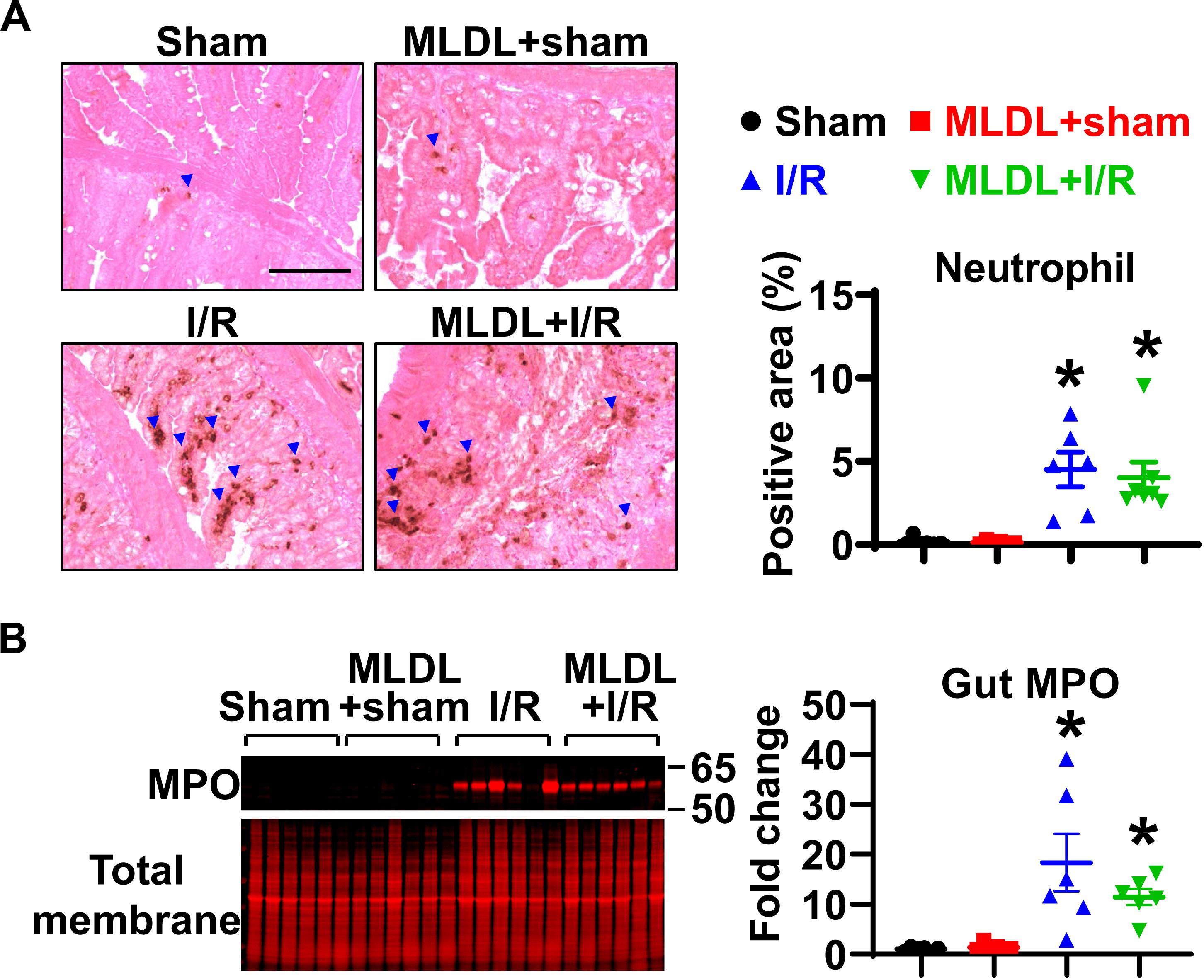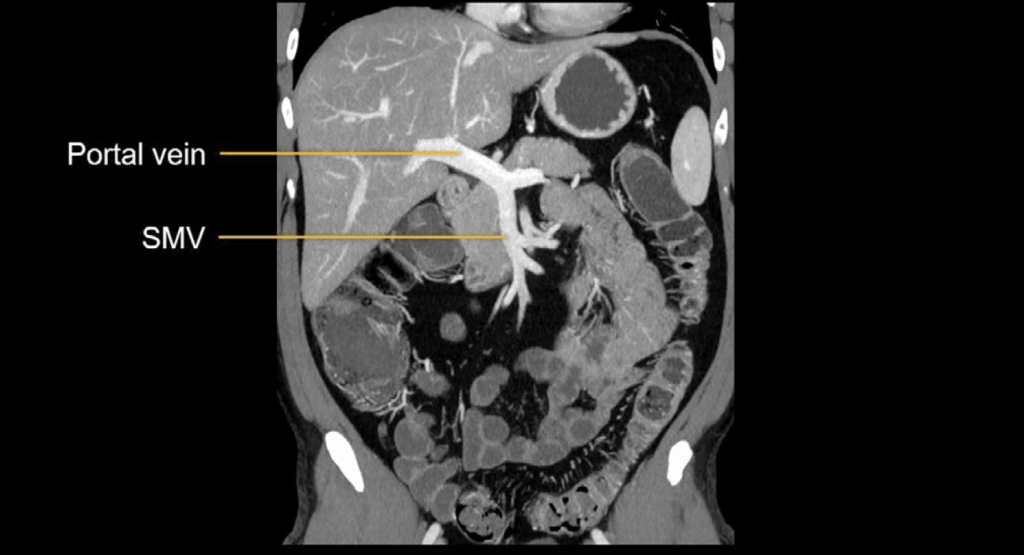Mesenteric ischemia, often abbreviated as MI, is a medical condition that occurs when there is reduced or blocked blood flow to the intestines. This can lead to severe complications if not addressed promptly. The term “mesenteric” refers to the mesentery, a fold of tissue that attaches the intestines to the abdominal wall and supplies them with blood. When this blood supply is compromised, it can result in damage to the intestinal tissues, leading to pain, digestive issues, and potentially life-threatening outcomes. In this guide, we will explore the causes, symptoms, diagnostic methods, and treatment options for mesenteric ischemia.

Understanding Mesenteric Ischemia
Mesenteric ischemia is a condition that arises due to inadequate blood supply to the intestines. Blood carries oxygen and nutrients necessary for the proper functioning of the intestinal tissues. When the blood flow is interrupted, the intestines cannot function properly, and this can lead to tissue damage or death. There are two main types of mesenteric ischemia: acute and chronic. Acute mesenteric ischemia occurs suddenly and requires immediate medical attention, while chronic mesenteric ischemia develops gradually over time.
Causes of Mesenteric Ischemia
The primary cause of mesenteric ischemia is a reduction in blood flow to the intestines. This can occur due to several reasons:
- Blood Clots: Blood clots can form in the arteries supplying blood to the intestines. These clots can block the blood flow completely, leading to acute mesenteric ischemia.
- Atherosclerosis: Atherosclerosis, or the buildup of fatty deposits in the arteries, can narrow the blood vessels and reduce blood flow to the intestines. This is a common cause of chronic mesenteric ischemia.
- Vasospasm: Vasospasm refers to the sudden constriction of blood vessels, which can temporarily reduce blood flow to the intestines.
- Hypotension: Low blood pressure, often caused by heart failure or shock, can reduce blood flow to various parts of the body, including the intestines.
- Bowel Obstruction: A physical blockage in the intestines can also lead to reduced blood flow, especially if the obstruction compresses blood vessels.
Symptoms of Mesenteric Ischemia
The symptoms of mesenteric ischemia can vary depending on whether the condition is acute or chronic. Recognizing these symptoms early is crucial for timely diagnosis and treatment.
Acute Mesenteric Ischemia Symptoms
Acute mesenteric ischemia is a medical emergency and presents with severe symptoms:
- Sudden Severe Abdominal Pain: The pain is often out of proportion to the physical findings during an examination. It may start suddenly and worsen over time.
- Nausea and Vomiting: These symptoms are common and may accompany the abdominal pain.
- Bloody Stools: Blood in the stool is a sign of intestinal damage and should be evaluated immediately.
- Fever: A fever may develop as the body responds to the damaged intestinal tissue.
- Rapid Heart Rate: Tachycardia, or a fast heart rate, is often present due to the body’s stress response.
Chronic Mesenteric Ischemia Symptoms
Chronic mesenteric ischemia develops more slowly and may include the following symptoms:
- Abdominal Pain After Eating: This is often referred to as “intestinal angina.” The pain typically begins 15 to 60 minutes after eating and can last for up to three hours.
- Unintended Weight Loss: Due to fear of pain after eating, individuals may avoid meals, leading to weight loss.
- Nausea and Vomiting: Similar to acute cases, these symptoms may occur but are usually less severe.
- Bloating and Diarrhea: Digestive issues such as bloating and diarrhea may also be present.
Diagnosing Mesenteric Ischemia
Diagnosing mesenteric ischemia can be challenging because its symptoms often mimic other gastrointestinal conditions. However, prompt diagnosis is critical to prevent complications. Several diagnostic methods are used to identify mesenteric ischemia:
Medical History and Physical Examination
A healthcare provider will begin by taking a detailed medical history and performing a physical examination. They will ask about the nature of the abdominal pain, eating habits, and any recent changes in weight. During the physical exam, they may check for signs of tenderness, bloating, or abnormal bowel sounds.
Imaging Tests
Imaging tests are essential for diagnosing mesenteric ischemia. These tests help visualize the blood vessels and assess blood flow to the intestines:
- Computed Tomography Angiography: This imaging test uses X-rays and contrast dye to create detailed images of the blood vessels. It can identify blockages or narrowing in the arteries supplying the intestines.
- Magnetic Resonance Angiography: This non-invasive test uses magnetic fields and radio waves to produce images of the blood vessels. It is particularly useful for patients who cannot tolerate contrast dye.
- Doppler Ultrasound: This test uses sound waves to evaluate blood flow through the arteries. It is a safe and non-invasive option for detecting reduced blood flow.
Laboratory Tests
Blood tests may be performed to check for signs of infection, inflammation, or organ damage:
- Complete Blood Count: This test measures the levels of red blood cells, white blood cells, and platelets. Elevated white blood cell counts may indicate infection or inflammation.
- Liver Function Tests: These tests assess how well the liver is functioning. Abnormal results may suggest complications related to mesenteric ischemia.
- Lactic Acid Levels: High levels of lactic acid in the blood can indicate tissue damage due to reduced blood flow.
Treatment Options for Mesenteric Ischemia
The treatment for mesenteric ischemia depends on the type and severity of the condition. Both acute and chronic forms require prompt intervention to restore blood flow and prevent further damage.
Treatment for Acute Mesenteric Ischemia
Acute mesenteric ischemia is a medical emergency and requires immediate treatment:
- Anticoagulation Therapy: Blood-thinning medications are administered to dissolve blood clots and improve blood flow.
- Surgery: In severe cases, surgery may be necessary to remove blood clots, repair damaged blood vessels, or remove dead intestinal tissue.
- Vasodilator Medications: These medications help widen blood vessels and improve blood flow to the intestines.
Treatment for Chronic Mesenteric Ischemia
Chronic mesenteric ischemia is managed through a combination of lifestyle changes, medications, and surgical interventions:
- Lifestyle Modifications: Patients are encouraged to adopt a healthy diet, quit smoking, and manage underlying conditions such as high blood pressure or diabetes.
- Medications: Blood pressure medications, cholesterol-lowering drugs, and antiplatelet agents may be prescribed to improve blood flow and reduce the risk of complications.
- Angioplasty and Stenting: This minimally invasive procedure involves inserting a balloon-tipped catheter into the blocked artery to widen it. A stent may be placed to keep the artery open.
- Bypass Surgery: In some cases, bypass surgery may be performed to reroute blood flow around the blocked artery.
Preventing Complications
Preventing complications from mesenteric ischemia involves managing risk factors and adhering to treatment plans:
- Regular Monitoring: Patients with chronic mesenteric ischemia should have regular follow-up appointments to monitor their condition.
- Healthy Diet: Consuming a balanced diet rich in fruits, vegetables, and whole grains can support overall health and reduce the risk of complications.
- Exercise: Regular physical activity can improve circulation and reduce the risk of blood clots.
Living with Mesenteric Ischemia
Living with mesenteric ischemia requires ongoing management and vigilance. Patients must work closely with their healthcare providers to monitor their condition and adjust treatment plans as needed. Education about the condition, its symptoms, and potential complications is essential for empowering patients to take an active role in their care.
Support groups and counseling services can also be beneficial for individuals dealing with mesenteric ischemia. Connecting with others who share similar experiences can provide emotional support and practical advice for managing the condition.
In summary, mesenteric ischemia is a complex condition that requires prompt diagnosis and treatment to prevent serious complications. By understanding the causes, recognizing the symptoms, and exploring the available treatment options, individuals can take proactive steps to manage their health and improve their quality of life.





